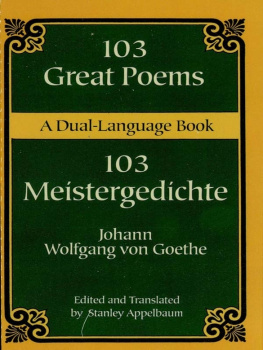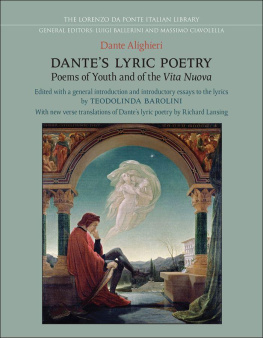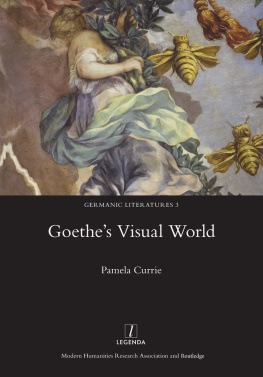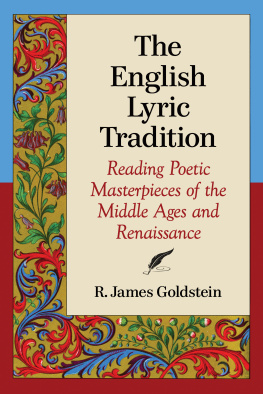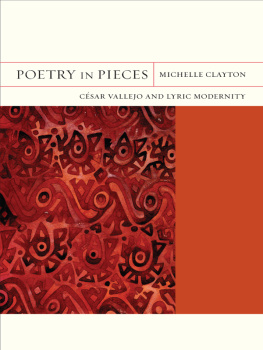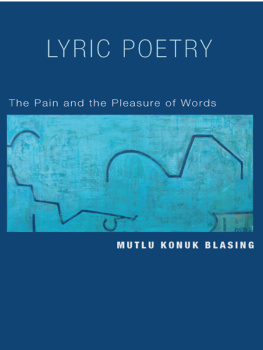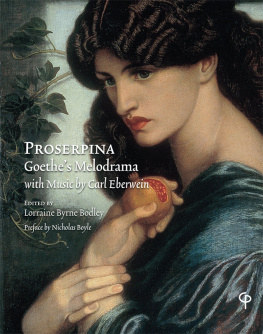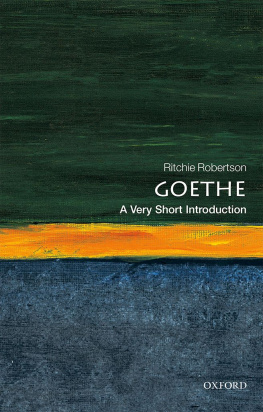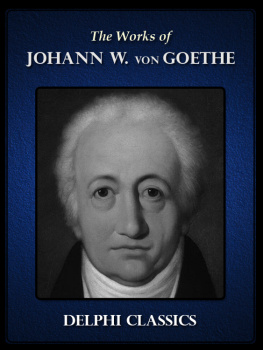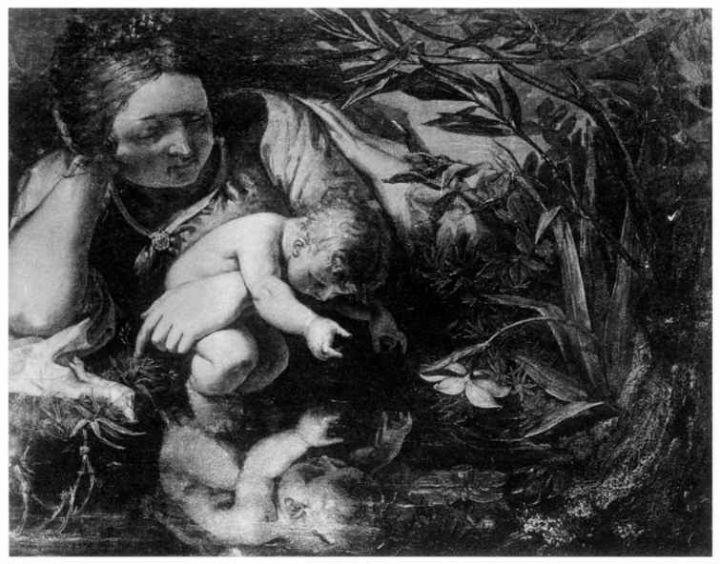Stanford University Press publications are distributed exclusively by Stanford University Press within the United States, Canada, Mexico, and Central America; they are distributed exclusively by Cambridge University Press throughout the rest of the world.
Acknowledgments
The first ideas for this book were sketched out during a stay at the Stanford Humanities Center in 1982-83, and the major work of elaboration was undertaken at the Wissenschaftskolleg zu Berlin during my fellowship year there in 1989-90. I am grateful to both those institutions and their respective directors, Ian Watt and Wolf Lepenies, for their support.
For their suggestive comments on portions of the book read or heard, I wish to thank John Bender, Marshall Brown, Rdiger Campe, Hans Ulrich Gumbrecht, Rodolphe Gasch, Fritz Gutbrodt, Werner Hamacher, Andreas Huyssen, Carol Jacobs, Friedrich Kittler, Wolf Kittler, Eberhard Lmmert, Winfried Menninghaus, Inka Mlder-Bach, Rainer Ngele, Peter Ptz, Tom Saine, Helmut Schneider, Bianca Theisen, Michael Titzmann, Jrgen Trabant, Peter Utz, Hans Vaget, Rainer Warning, Marianne Wnsch, Walter Zimmerli, and Raimar Zons. Ernst Behler, Dorothea von Mcke, and an anonymous referee read the penultimate version of the manuscript in its entirety and their remarks were decisive in helping me to sharpen my argument.
Some ten years ago Klaus Weimar of the University of Zurich initiated a dialogue with me on Goethe's poetry that has been the crucible of most of the ideas in the book. During the same time, Helen Tartar of Stanford University Press has provided indispensable, detailed advice on every aspect of the writing, and her unflagging editorial commitment has sustained my belief in the project throughout. I trust it will not be felt as a diminishment of my gratitude to those mentioned above if I single out my
-ix-
indebtedness to these two individuals. Without their collaboration The Specular Moment would not have been written.
An earlier, briefer version of Chapter 1 appeared in Wilfried Barner, Eberhard Lmmert, and Norbert Oellers, eds., Unser Commercium: Goethes und Schillers Literaturpolitik, Verffentlichungen der deutschen Schillergesellschaft, vol. 42 ( Stuttgart: Metzler, 1984). Chapter 2 is a revised version of an article published in Goethe Yearbook 1 ( 1982). Chapter 9 represents an expansion of my contribution to David E. Wellbery and Klaus Weimar, Goethes "Harzreise im Winter": Eine Deutungskontroverse ( Paderborn: Ferdinand Schningh, 1984). Permission to use these materials is gratefully acknowledged.
-x-
Contents
|
PART I: THE SPECULAR MOMENT | 1 Idyllic and Lyric Intimacy |
| | |
|
PART II: THE SEXUALIZATION OF SPECULARITY | 5 Genius and the Wounded Subject
of Modernity |
|
|
| PART III: THE MYTH OF LYRIC VOICE |
PART IV: POETIC VOCATION | 8 Hermeneutics and the Origin of Humanity |
| |
|
-xi-
-xii-
Note on Abbreviations
For the most part, Goethe's poems are cited from: Johann Wolfgang von Goethe , Smtliche Werke, Briefe, Tagebcher und Gesprche, vol. 1: Gedichte 1756-1799, ed. Karl Eibl ( Frankfurt a. M.: Deutscher Klassiker Verlag, 1987). References to this edition are indicated as Gedichte 1756-1799. Other works by the young Goethe, such as reviews, dramas, essays, and occasionally versions of poems, are cited from: Johann Wolfgang von Goethe, Smtliche Werke nach Epochen seines Schaffens, vols. I/1 and I/2, Der junge Goethe 1757-1775, ed. Gerhard Sauder ( Munich: Hanser, 1985 and 1987). This edition is indicated as Mnchener-Ausgabe. Finally, well-known works such as Die Leiden des jungen Werther or Faust are cited from the widely distributed Hamburg edition: Goethes Werke, ed. Erich Trunz ( Hamburg: Christian Wegner, 1968). The abbreviation employed to refer to this edition is: H. A., with volume and page.
-xiii-
[This page intentionally left blank.] | -xiv- |
|
Phillip Otto Runge,
Mother at the Source. Destroyed in World War II. Formerly Kunsthalle, Hamburg, Germany (Foto Marburg / Art Resource NY; S0077061 1102.722).
-xv-
[This page intentionally left blank.] | -xvi- |
|
PART ONE The Specular Moment
-1-
[This page intentionally left blank.] | -2- |
|
1 Idyllic and Lyric Intimacy
Modern interpretation, Carlo Ginzburg has argued in a deft essay, follows the spoor of Morelli. Rather than focus on the grand themes that parade as center and essence, it seeks its clues on the periphery, among the inadvertent traces and remainders of cultural production. Morelli's major concern was to authenticate the painterly signature of the great masters, to provide accurate attributions by meticulously examining such details as the folds of ears. My own purposes here, of course, do not bear centrally on disputes regarding authorship (the corpus I shall be analyzing is, with rare exceptions, firmly affixed to Goethe's name), but I shall nevertheless begin by assuming the basic gesture of Morelli's method and attending to a collocation of marks (clues, traces) that, under scrutiny, crystallize into the signature of a historical emergence. At issue are the linguistic forms-lexical, syntactic, and rhetorical configurations--I have emphasized in the following two texts:


